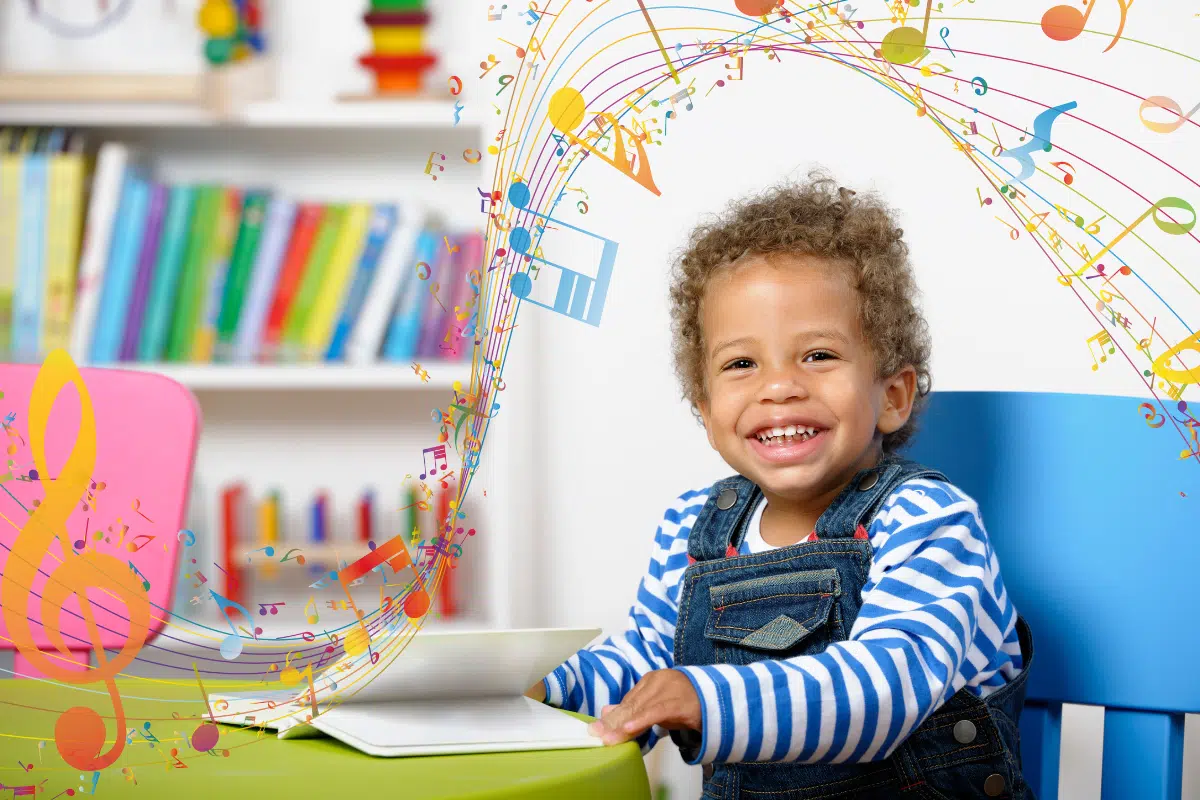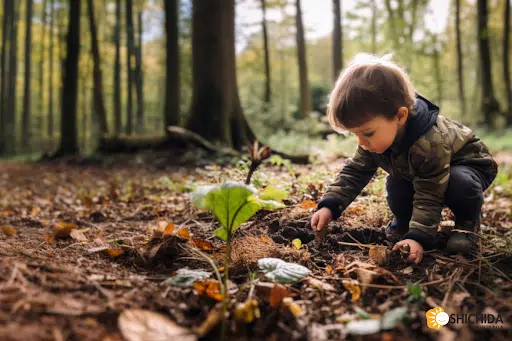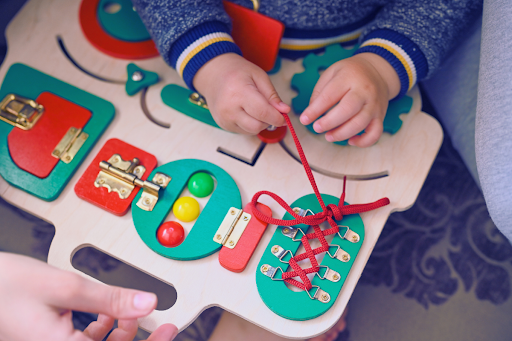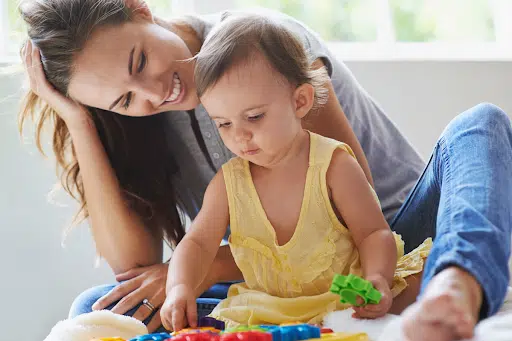
Exploring early brain development is all about setting up little ones for life’s big adventures. Let’s take a look at the various stages of brain development, discovering fun and engaging activities tailored for each step–we’ll guide you in nurturing well-rounded, curious little learners ready to explore the world!
Exploring early brain development: from birth to school age
The human brain is incredibly adept at learning, particularly during those precious early years. Understanding this journey can be fascinating as a parent, as you watch the little cogs and wheels of your child’s mind whirr and click, blossoming with every new discovery.
0-3 Months (Newborn Phase):
- The brain at birth weighs about a third of what an adult brain does. In these first few months, the brain is busy forming connections between neurons. Every new sensory experience – be it sound, light, or touch – strengthens these connections.
- This is also the phase when the foundation for skills like language and emotions are laid down.
4-12 Months (Infant Phase):
- The brain’s development in this phase is focused on refining sensory pathways and motor skills. This is when babies start to reach out, grasp objects, and become more aware of their environment.
- Babies start to recognise faces, respond to social cues, and even start babbling, setting the stage for language development.
1-2 Years (Toddler Phase):
- There’s a burst in language skills. Children start forming words and simple sentences. This is accompanied by rapid growth in the areas of the brain associated with language and communication.
- Toddlers also start to exhibit early problem-solving skills and understand cause and effect.
3-5 Years (Preschool Phase):
- During these years, the brain is fine-tuning its neural pathways. Children’s language skills become more complex, and they start to grasp abstract concepts.
- Emotional control and understanding start to develop. Children begin to form friendships and understand others’ feelings.
6 Years and Beyond (School Age):
- As children enter school, their brain continues to develop in areas that govern more complex understanding, reasoning, and social interaction.
- This period is vital for developing critical thinking, memory, and complex problem-solving skills.
Throughout these stages, the Shichida Method aligns its whole-brain training approach to complement and enhance each developmental phase, ensuring that children receive the right stimulation at the right time. By engaging in activities tailored to these stages, parents can actively contribute to their child’s brain development, nurturing their growth in a holistic and meaningful way.
How early learning shapes a child’s mind
How children interact with their world and their earliest experiences shape their brain’s growth. Let’s keep exploring early brain development for kids further and how these experiences affect a child’s behaviour, learning, and emotional wellbeing.
Sensory and Motor Development
In the early years, kids experience a surge in sensory and motor development. This is when they learn to coordinate their movements, explore textures, sounds, sights, and start to understand their bodies in relation to the world around them.
Language and Communication
As kids grow, their ability to communicate takes off. This isn’t only about speaking; it’s also about understanding. This period is marked by a leap in vocabulary, the ability to form complex sentences, and the beginning of effective communication skills.
Social and Emotional Growth
Brain development is deeply linked to a child’s social and emotional skills. This includes the ability to form bonds, empathise with others, and express a range of emotions. These skills are crucial for their overall development and lay the foundation for healthy social interactions in the future.
Cognitive Skills
Cognitive development refers to how kids think, explore, and figure things out. It involves skills like memory, reasoning, problem-solving, and creativity. During the early years, these skills develop rapidly, influenced by both genetics and environment.
The Role of Play
Play is a powerful tool in brain development. It’s through play that kids learn to interact with their environment, solve problems, develop language skills, and engage in social interactions. Play also stimulates imagination and creativity, which are key aspects of cognitive development.
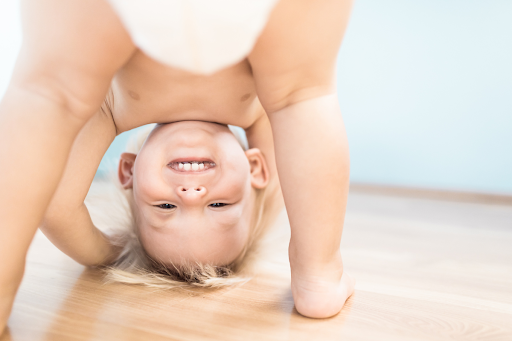
Why is exploring early brain development important?
Understanding early brain development is about unlocking a child’s full potential, both in academics and in life.
The Power of a strong start
Imagine laying down a superhighway in a child’s brain. That’s what healthy early development does. It sets up kids for success in school and beyond, giving them a headstart in everything from reading and maths to solving complex problems.
Emotional intelligence and social superpowers
A well-nurtured brain is the key to a big heart and strong social skills. Kids with healthy early development can better handle their emotions, make friends easily, and show empathy – vital skills in today’s world.
Creativity and adaptability
Early brain development is like planting the seeds of creativity and flexibility. It’s about encouraging kids to think out of the box and adapt to new challenges, preparing them for a world where change is the only constant.
Navigating the digital world
Early brain development can help kids get tech-ready. They’re more likely to adapt to technological changes and use tech tools effectively for learning and problem-solving.
Ideas for Exploring Early Brain Development
Exploring early brain development is an adventure, and having the right activities for each stage makes it all the more rewarding. These activities are like keys, unlocking and stimulating the brain in just the right way, fitting perfectly with its growing needs at every turn. Ready for some fun ideas?
0-3 Months (Newborn Phase):
Activity: Soft texture exploration
Engage your newborn’s sense of touch with various soft fabrics like cotton, velvet, or fleece. Gently brushing these materials over their skin stimulates tactile pathways, which are crucial for sensory development.
Activity: Gentle sound stimulation
Soft music, lullabies, or simple songs can be soothing. Speaking and singing to your baby in gentle tones helps develop their auditory processing and lays the groundwork for early language acquisition.
4-12 Months (Infant Phase):
Activity: Reach and grasp games
Encourage your infant to reach for safe, colourful objects or toys like stacking cups. This activity promotes hand-eye coordination and strengthens their understanding of spatial relationships.
Activity: Facial recognition and response
Spending time making faces or using expressive facial movements helps your baby learn to recognise and respond to different emotional expressions, fostering social and emotional development.
1-2 Years (Toddler Phase):
Activity: Simple word association games
Use picture cards or everyday objects to teach words, enhancing vocabulary and comprehension. This also encourages associative thinking, a key cognitive skill.
Activity: Cause and effect toys
Toys like pop-up boxes or simple interactive games teach toddlers the concept of cause and effect, an important aspect of cognitive development and early problem-solving.
3-5 Years (Preschool Phase):
Activity: Storytelling and role play
Engage your child in storytelling, perhaps using puppets or costumes for role-playing. This stimulates their imagination and helps with understanding emotions and social situations.
Speak Up Stories picture books help little ones become familiar with English words as you read aloud to them.
Activity: Simple puzzles and matching games
Completing puzzles like Cho Cho Ban or playing matching games like ‘Memory’ can improve concentration, enhance memory, and develop logical thinking.
Activity: Interactive music and movement
Involve your child in activities that combine music with physical movement, such as dancing to rhythms or clapping along to different beats.
This type of activity not only makes learning fun but also integrates auditory and kinesthetic learning. It enhances coordination, rhythm, and spatial awareness while also stimulating areas of the brain responsible for auditory processing and motor skills, making it a holistic brain training exercise.
Explore our range of fun, educational music which can also help your little one learn to count, say the alphabet and other everyday activities.
6 Years and Beyond (School Age):
Activity: Strategy Board Games
Introducing games that require strategic thinking, like chess, helps in developing advanced problem-solving skills, patience, and planning.
Activity: Science experiments
Conducting simple, safe experiments, like a baking soda and vinegar volcano, fosters scientific curiosity and encourages logical reasoning and observational skills.
These activities not only support the developmental milestones of each phase but also provide a fun and engaging way for children to learn and grow.

Exploring early brain development for kids with The Shichida Method
Are you ready to tap into the incredible learning potential of your child’s early years?
Your child is a natural learner, especially from birth to 3 years old. This is the time when their minds are most open, absorbing new skills like sponges.
The left brain is associated with logical thinking, analysis, and accuracy, skills often emphasised in conventional education. It excels in tasks involving language, mathematics, and reasoning. On the other hand, the right brain is the seat of creativity, intuition, and holistic thinking. It plays a crucial role in imagination, visualisation, and emotional intelligence.
Our unique ‘whole brain’ approach ensures that your child’s education is not one-sided. While they learn to solve problems and think critically (left-brain activities), they also engage in activities that encourage creativity, empathy, and big-picture thinking (right-brain activities).
This balanced stimulation during the Sensitive Period, from birth to 3 years old, is crucial for optimal brain development. It helps in forming more intricate neural connections, fostering a higher level of cognitive and emotional development.
Book a trial class at a Shichida early learning centre today!
